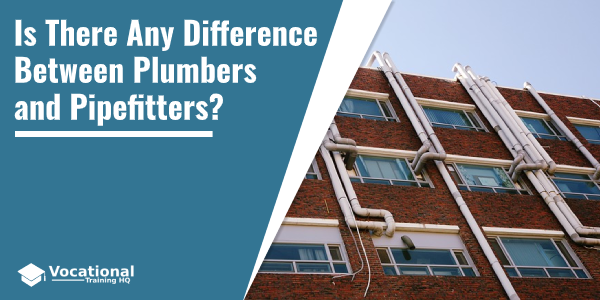
While both plumbers and pipefitters work with pipes, these are two different trades.
What sets these two areas of expertise apart is the scale of the work and the type of pipes they work with.
Pipefitters usually work with large pipes that are found in industrial settings, while plumbers work with regular pipes that can be found in homes.
Article Table of Contents
Differences Between Pipefitters and Plumbers
Pipefitters and plumbers work in different types of settings, with various types of pipes, and they need a different set of skills for the job.
Now let’s find out more about the differences between these two professions.
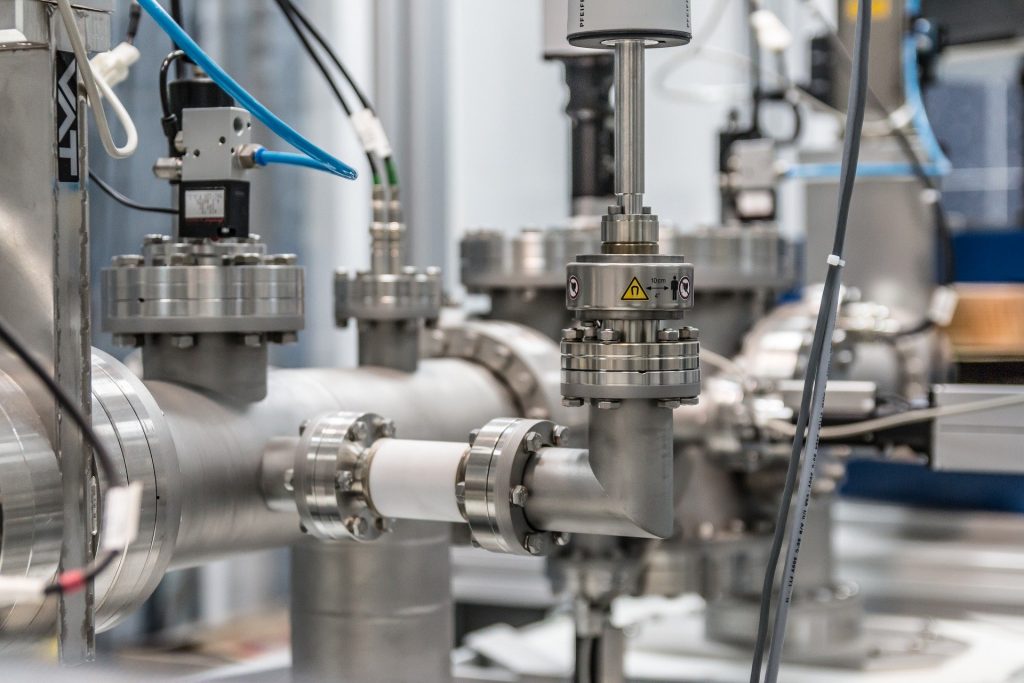
The Place of Employment
Plumbers are usually called to homes or businesses while pipefitters work in factories, shipyards, and other industrial worksites where they repair and maintain heavy-duty pipes.
While plumbers are usually employed by construction companies, home building companies, or are self-employed, pipefitters work for manufacturing plants, commercial businesses, the navy, merchant marines, or the petroleum industry.
Different Job Description
Both trades involve installing, maintaining, and repairing pipes, but job descriptions vary as a result of the fact that plumbers and pipefitters work in different settings.
A plumber’s job description typically includes installing, repairing, and maintaining sewage lines, water heaters, or water filtration systems.
They also unclog pipes and drains, build bathrooms or remodel existing piping systems, fix or replace water fixtures, install dishwashers, and troubleshoot plumbing systems- all while following local and state building codes.
Pipefitters, on the other hand, have to install, repair, and maintain pipes that carry acids, gases, and chemicals.
They also service commercial heating and cooling systems, work on fuel and delivery systems, and maintain commercial water and disposal systems.
Pipefitters need to know how to weld, cut, and reshape pipes and other components, and how to install piping to fit compressors, pumps, meters, and hydraulic and pneumatic controls.
They work with pipes that are made from different materials such as copper, PVC, steel, or Inconel and have to make sure that safety requirements are followed.
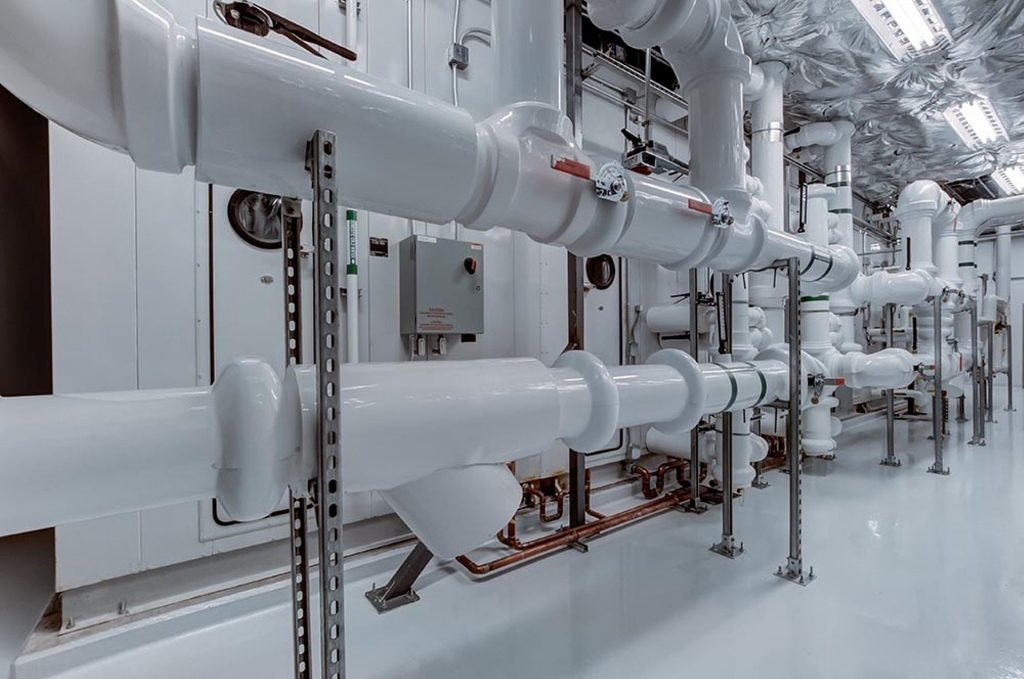
Pipefitters Have Different Specializations
Depending on their area of expertise, there are different types of pipefitters.
Those who work with pipes that deliver gas or oxygen are gasfitters, while those who install and repair sprinkler systems are called sprinkle fitters.
The ones who install pipes that carry high-pressure steam, water, and other substances are called steamfitters.
Pipefitters and Plumbers Need Different Skills
While both professions need physical strength and good mechanical and troubleshooting skills, pipefitters and plumbers need different skills that are unique to their specific profession.
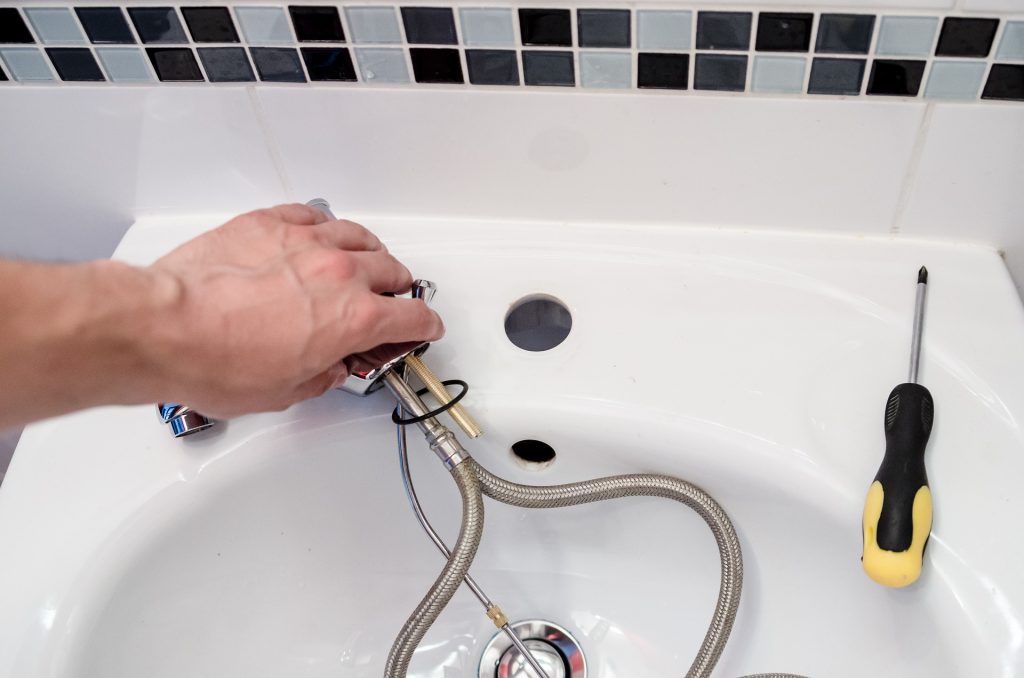
Skill Requirements for Plumbers
Plumbers usually work in homes and commercial settings such as shopping malls, or office buildings.
Because they interact with their customers, they need good communication skills to plan work schedules and to bid on jobs.
Having good communication skills also comes in handy when directing workers and explaining technical issues to customers.
Plumbers who work in homes also need good customer service skills and the ability to establish long-term business relationships.
Because they may work in confined spaces, plumbers also need dexterity.
Pipefitter Skills
Pipefitters need to be able to bend pipes and replace sections of pipe systems, and they need good welding skills.
They also need to know how to use rigging equipment to install pipes below and above ground.
Pipefitters also need to use shoring methods when working with heavy pipelines.
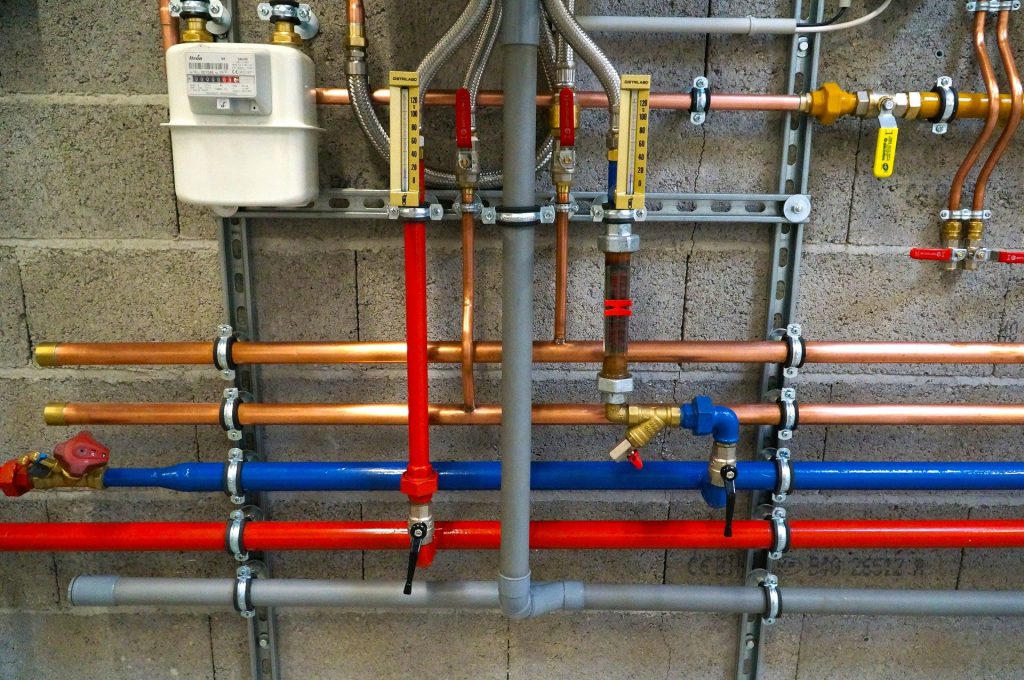
Salaries and Job Prospects for Pipefitters and Plumbers
When reporting data about salaries and employment prospects, the Bureau of Labor Statistics (BLS) lists plumbers, pipefitters, and steamfitters under the same category.
This is explained by the fact that both professions work with piping systems, and there are several similarities between the two occupations.
According to the BLS, employment growth for plumbers, pipefitters, and steamfitters is estimated at 4 percent for the 2019-2029 decade- about as fast as the average for all occupations.
Their services will continue to be needed- especially on new construction projects and on projects that involve repairing existing piping systems in homes and commercial buildings.
Employment prospects are looking good especially for sprinkler fitters as states adopt building codes that require the use of fire suppression systems.
Job prospects vary depending on the region, the level of construction work, and economic fluctuations.
The Bureau of Labor Statistics reports that the median annual salary for plumbers, pipefitters, and steamfitters was $55,160 as of May 2019 but salaries vary between less than $33,000 and more than $97,000 depending on experience, skills, and many other factors.
How to Become a Plumber or a Pipefitter
If you want a career in this field, you first have to complete an apprenticeship program or post-secondary training in plumbing and pipefitting at a trade school.
These programs typically cover topics such as pipe system design, tool usage, safety regulations, and many other related subjects.
If you want to become a pipefitter or a steamfitter, you will also have to take welding classes.
Before being ready to practice independently you will also need a few years of supervised experience and a passing score at a licensing exam.
Read the full guide: How to Become a Plumber
I was a fitter, great job. I worked my a** off, but it was worth it. Hard weather, work, you had to be in good shape. From the choking dirty cellars to the high heat on roofs or boiler rooms. I loved it, got to move around, different places, people, eateries, lot of beer!
But hard work and I liked it!
Let’s get these Snow-Flakes working!